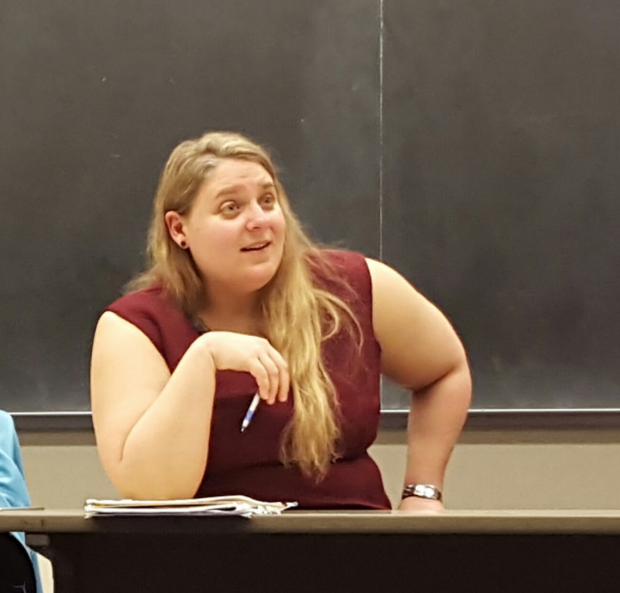
For the past year, Maria Dahmus has been gathering projects and partners for the university’s Sustainable Communities Partnership pilot program, which links what students are learning in the classroom to questions that local organizations are trying to answer.
“These local government units, and especially cities, are facing emerging sustainability issues that they may not have ever faced before,” Dahmus, program manager for St. Thomas’ sustainability initiatives department, said. “They don’t necessarily have the time or the capacity to address all of the things that are happening. Cities face these challenges with limited resources.”
That’s where SCP comes in. Through this program, Dahmus connects government entities with professors and students who are able to help solve the organization’s sustainability questions while gaining real-world experience.
Project partners go through an extensive scoping process where Dahmus looks at what the organization is asking for and assesses whether it is achievable and if it fits into an existing St. Thomas course.
Some of the projects SCP’s partners want to complete will take multiple semesters before coming to fruition, or the projects need to be broken down into smaller pieces and tackled by multiple courses. As long as the goal is achievable, Dahmus can help.
“It’s like a puzzle, and we try to fit the pieces together in the places where it most enriches the course, but we can be really flexible about how that happens,” she said. “We can cut the pieces into smaller pieces if we want, as long as they can fit back together.”
Lucia Pawlowski, assistant professor for the English department, teaches analytical and persuasive writing, which works with the Mississippi Watershed Management Organization’s Master Water Stewards, volunteers who work with the organization to educate their neighborhood about water use.
In her course, Pawlowski typically works with five different nonprofits — which she finds and researches herself — so that students can “learn rhetoric by working within a real-life rhetorical context.” By partnering with SCP, she had one less organization to find.
“I really wanted some science majors in my class,” Pawlowski said. “I knew I needed to go sustainability.”
“When we think about environmental impacts, and we think about environmental degradation, we get overwhelmed. Master Water Stewards is a way to tap into a real-life, local solution to environmental degradation,” Pawlowski said. “It’s a way of bringing home the global problem on a local level and problem solving it, as opposed to feeling overwhelmed by it.”
Genevieve Gates, a junior in Pawlowski’s class, is one of the students working with MWS. At the beginning of the semester, students were able to choose which community partners they wanted to work with for their projects, and Gates chose the Freshwater Society’s Master Water Stewards.
“I wanted to learn more about water quality and why water use is so important, especially in a city like the Twin Cities,” Gates said.
Gates is an Apartment Coordinator in Morrison and tries to encourage her residents to do little things like turn the water off while they’re brushing their teeth.
“We have to understand the implications of the kinds of things we’re doing,” Gates said.
At this time, students can only participate if they’re in a course that is working with SCP; the few clubs that are currently partnering with SCP found this opportunity through their course work.
“There’s the student entrepreneurship club, and the leader of that club is a student in the economics courses. After I came to his class, he contacted me about whether the partners would have any projects they could work on with their club,” Dahmus said. “I connected him to … our main project contact at Elk River, so they may work on some things with businesses there. That’s an example of how it’s not directly through us, but it’s through our partnership.”
Gates echoed that sentiment.
“The power of the student body is really prominent. I feel like working with organizations and the sustainability department would make it way more powerful. I don’t think that we as a student body care enough and have as much of a voice about this as we should,” Gates said.
Meghan Meints can be emailed at mein9517@stthomas.edu.

